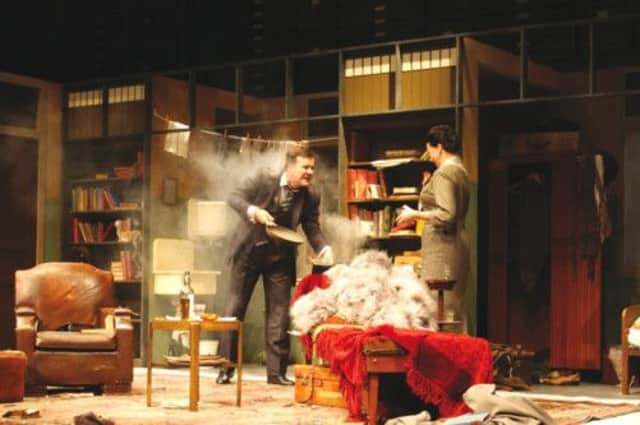Theatre review: Single Spies, Pitlochry


Single Spies - Pitlochry Festival Theatre
* * *
It’s no accident that his double bill of short plays about the famous group of Cambridge spies – recruited to communism in the hungry 1930s, and exposed as Soviet agents in the 1950s and 1970s – has been one of his most successful works.
Richard Baron’s Pitlochry production begins in fine style, with a cracking rendition of An Englishman Abroad, Bennett’s fine 1983 piece – first seen as a television play – based on a real-life encounter, in gloomy Moscow in 1958, between the exiled spy Guy Burgess, and the Australian-born actress Coral Browne. “It seemed the right thing to do at the time,” says Greg Wagland’s persuasive Burgess, of his decision to betray the British state, although not – he believes – the England he loves. The echoes of the current Edward Snowden case are obvious, and well worth pondering.
Advertisement
Hide AdThere’s a distinct loss of pace and energy in the second half, though, as the same company – led by a magnificent and highly amusing Basienka Blake, as Coral Browne and the Queen – launch themselves into A Question of Attribution, about the revelation in 1979 that the eminent art historian Sir Anthony Blunt was the fifth man in the Cambridge spy ring. The play revolves around an imagined encounter, in a Buckingham Palace corridor, between Blunt and the Queen, well sustained by Blake and Dougal Lee.
Elsewhere, though, the play seems to lose itself in slightly over-elaborate scene-changes and in word-play with the ideas of concealment and fakery that seems clever enough at first, but soon dwindles into arch self-consciousness and a statement of the obvious.